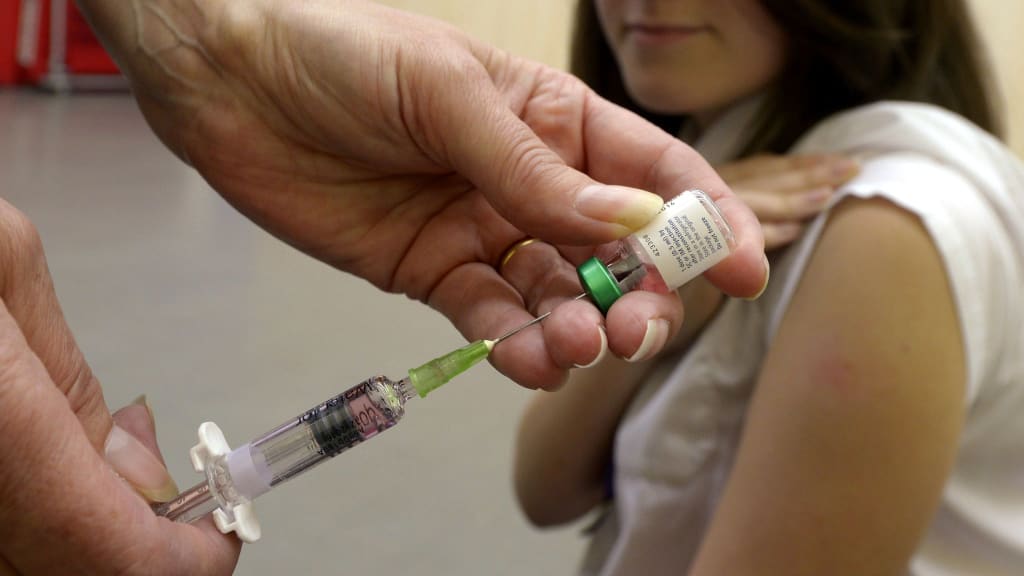
NHS England is urging young adults around the age of 19-25 to take up the opportunity of catching up on their missed MMR vaccine. Around 900, 000 people are being requested to book an appointment to have the Measles, Mumps and Rubella vaccine which they may have missed as part of an NHS catch up campaign.
From this week, the Health Service will be targeting people in three main areas. These include West Midlands, Greater Manchester and London. These areas have been judged to be at higher risk due to the large numbers of people who have not taken up their offer of having the vaccine first time round. This may be because of many of the stories they’ve heard through the media which have been discovered to be untrue. These include false information that the jab causes people to develop autism. There have been epidemiological studies conducted which have now cast doubt on the link between the vaccine and autism although many people still have worries about receiving it.
In previous weeks, over 200,000 young people have been sent reminders to go and get their vaccine. This is all in an effort to ensure that they stay as fit and healthy as possible and avoid contracting one of the world’s most infectious diseases. It is completely preventable as long as people get the vaccine and take the appropriate precautions which are needed. Once infected, an adult or a child has the potential to pass the disease on to fifteen other unvaccinated people. This illustrates how virulent it is and all measures should be taken to prevent the disease spreading.
At the moment there is no medical treatment for Measles however two doses of the MMR vaccine can give someone lifelong protection against becoming seriously unwell due to it.
In phase one of the NHS catch-up campaign, over a million parents and carers of 6-11 year-olds in England that are not up to date with their MMR vaccinations were sent emails, letters and texts inviting them to book a vaccine appointment for their children.
There have been many, many more invites sent out to parents and carers of children aged 11-16 years old in London and the West Midlands. This is due to the fact that these two areas have been selected for an enhanced catch up programme due to an increase in the number of cases combined with low vaccine uptake rates.
Steve Russell, NHS Director of Vaccinations and Screening, said: “Measles is one of the most infectious diseases in the world and can cause serious harm to adults and children of all ages.
“But the NHS MMR vaccine gives life-long protection against becoming seriously unwell, so with cases of measles on the rise, it is not worth the risk of going without this vital protection.
“Measles, mumps and rubella are preventable, but catching them is easy when people are unvaccinated, so I urge people to come forward and get the MMR vaccine sooner, rather than later.”
The NHS call for action around by young adults on getting their MMR vaccination is being supported by 20 years old, Rosie Brentnall.
Rosie, said: “After reading about the number of measles cases increasing in the news, I double checked I was fully vaccinated and protected against this horrible disease. I was pleased when my GP confirmed I’ve had both doses of the MMR vaccine, especially as I am at University and about to go abroad, where I know there have been more cases. I can now travel without worrying I am going to get unwell when away from home.”
Dr Gayatri Amirthalingam, Consultant Medical Epidemiologist for Immunisation at UKHSA, said: “Anyone who is not vaccinated against measles can catch it. Being unvaccinated also means you risk spreading the disease to others, including those at greatest risk of becoming seriously ill – like infants, who aren’t able to receive their MMR vaccine until their first birthday, pregnant women and those with a weakened immune system.
“The MMR jab also protects against complications from mumps in young adults. I strongly urge anyone who’s not vaccinated to protect both themselves and those more vulnerable around them.”
More information on the MMR vaccine is available at NHS.uk